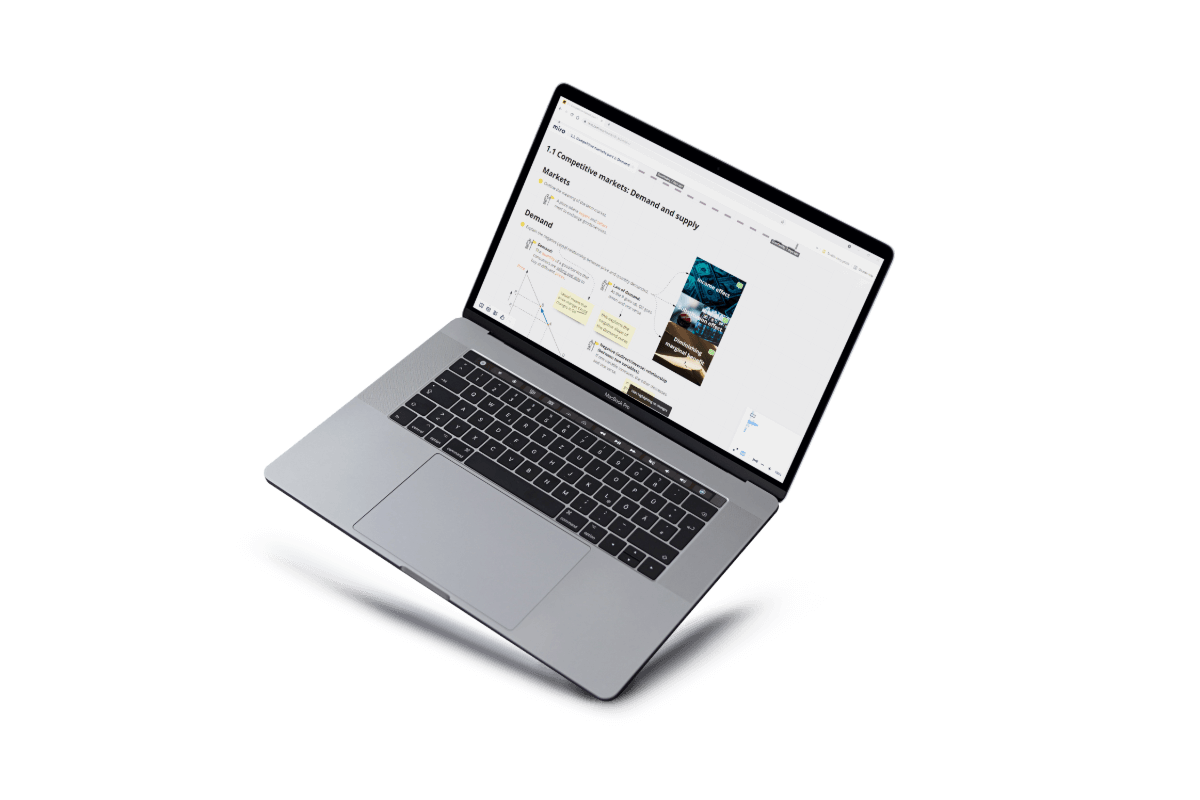
Source of originial pic: funnyordie.com
OK, let’s make things clear at the beginning:
The IB is tough, but it’s by far not as bad as the fake picture shows above.
On the contrary, and especially for IB Economics, you can score well pretty easily if you follow my advice below. Here are some frequent questions from terrified IB students.
Do I need to know anything about economics before I start?
No.
I ain’t good at math… Is math really difficult in IB Economics?
Well, here are the things you need to know:
- Adding up numbers
- Subtracting numbers
- Multiplying numbers
- Dividing numbers
- Linear functions
By the age of 10 you should know the first four of these, and most students around the world also know what a linear function is latest by the age of 14. But even if you are not sure of this last one, there will be plenty of practice during the 2 years to familiarize yourself with it. You also have to be able to solve very simple simultaneous equations and calculate a percentage change, but if you know how to add up, subtract, multiply and divide numbers, then these will be very easy things to do.
So that’s all about math. I mean IF you are taking IB Economics at higher level (HL). That is, at standard level (SL) there is absolutely no math involved. Yepp, you’re right, not even adding up two innocent little numbers. Nothing.
OK, so shall I go for IB Econ SL, rather than HL???
Well, it obviously depends on many factors, such as: what you would like to study after the IB (it is scientifically proven that there is life after the IB, so don’t worry), what other subjects you would like to/need to study at higher level within the IB, are you in some serious trouble with math, etc.
I think that it is worth taking IB Economics at HL, because:
- You can score well pretty easily. For example, in May 2015, 13% of students got a 7, and 31% of them got a 6. This means, that nearly half of all students got a 6 or a 7. This value (of those who got a 6 or 7) for History HL is only 13%, for Business and Management HL it’s 28%, for Psychology HL it’s 24% and for Environmental Systems and Societies (SL) it is only 17%. And perhaps even more interestingly, students did better at HL than at SL, as in the latter one, only 9% of students got a 7, while only 21% of them received a 6. All of this info is available from the official IB statistical bullentin for May 2015.
- If you don’t take IB Economics at HL, you will miss a lot of fun stuff. You would basically miss the most important parts, the ones that make it worth studying economics. For example, there is nothing about market theory in SL, while this section focuses on great topics, such as why your coffee might be too expensive and why some drug companies charge extremely high prices for their products.
- Although there is more to study, the syllabus is not hard at all. Yes, you would need to do a little math (see above), but overall, Paper 3 (the paper that includes mathematical questions and some explanations – only given to HL students), is a rather simple 60 min. Test. I know, the other 2 papers can also have HL specific questions, but believe me, they are simple (or at least manageable).
OK, got it. Any tips for the year ahead?
Yes, I have a few:
- Always prepare from one class to another. This is essential especially in the 1st year of the IB as EVERYTHING that you’ll study builds on previous knowledge. So right now in September, it’s still not too late to catch up with the syllabus, but if you don’t do it now, I can guarantee that you will get lost in this subject. The lack of continuous studies is why most students end up at me 3-4 months before the final exams, begging me to teach them the whole IB Economics syllabus: because they hadn’t paid attention at the beginning and then lost track.
- Learn the definitions. If you’re confident in using economics terminology, it will be a lot simpler to understand theories and concepts. It will enable you to show that you know what you’re talking about when you’ll later have to explain such concepts in a test.
- Practise! Drawing diagrams and solving those simple math problems needs some practice from you. The more you get used to them, the less errors you will make. And this is important, as details matters. Students often lose valuable marks because they have not practised enough and as a consequence forget to label their graphs or give the units at the end of calculations. Careless errors that would never happen if you practise a little.
- Take it easy and have an open mind. Do not forget that the models you will study about are simplification of real life. Yet, we use the science of economics to get to know our world more. This is why examiners will want you to be able to connect everything you learn in the next 2 years to real life events or situations. If you get stuck in economics concepts, but are unable to relate them to the world you live in, then there is absolutely no sense in studying this subject. So throughout the course, make sure that you are aware of the real-world use of what you are studying about, and at the same time don’t forget about the limitations either. Btw, this is true for all subjects in my view.
- Don’t hesitate to ask for help when you need it. Especially because of the 1st bullet point above… I’m sure that your teacher will always be happy to help you out, but you can also turn to your friends, or even me if you get stuck.


